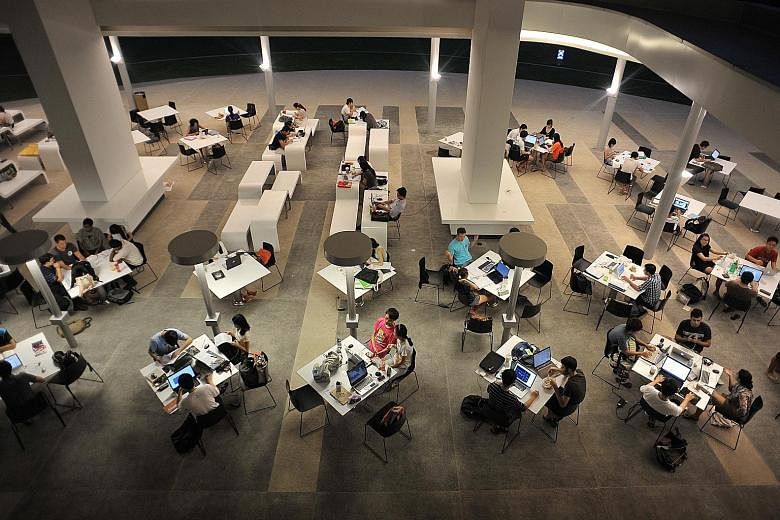In many Western societies, families regard going to university as a momentous coming-of-age event.
It is often the first time that sons and daughters will bid farewell to the comforts of home to spend an extended time away from their families, in a completely new and exciting environment, many kilometres away.
In Singapore, though many students continue to live at home with their families, the entry into university also marks the beginning of a new adventure.
All who are matriculating into universities here have worked hard to earn a place and have much to look forward to.
Universities in Singapore offer world-class education and a transformative experience.
Some freshmen may find the academic culture of university life very different from their earlier school years. Students are expected to engage with their studies with a much greater degree of depth, independent thinking and learning. They are also expected to speak out and lay down their thoughts and ideas.
Professors will probe and question as part of the teaching and learning process. Students should not feel intimidated or aggrieved.
They will find themselves learning through active interaction with professors and peers, inside and outside class.
There are no 10-year series. It is also fairly difficult to get private tutors to help.
At the National University of Singapore (NUS), students begin their academic journey with a grade-free first semester, which will help freshmen in transitioning to this new academic culture.
In the nurturing yet rigorous scaffold of a grade-free semester, the university maintains high standards in grading, but students who achieve at least a C may choose to include or exclude the grade in their final score.
They can do so for up to five modules. Those with lower grades must retake the modules or take other modules.
This policy encourages all new students to take a fresh approach and to satisfy their curiosity and pursue their interests without fear of adversely affecting their grades.
It presents a wonderful opportunity for students to engage in intellectual exploration.
Beyond their chosen discipline, the students can read and discover other areas of interest - NUS has 16 schools that offer more than 50 bachelor degrees.
They can also acquaint themselves with perspectives and frameworks that other disciplines employ, and pursue intellectual inquiry in a broad range of subjects.
Being part of a large campus community brings many advantages. There is much life, learning and enrichment beyond the classrooms.
Students have many avenues to try out new interests and activities.
NUS, for instance, has many performing arts groups, a wide range of competitive and recreational varsity sports groups, interest groups, and more than 100 clubs and student societies.
Residential colleges and halls of residence also host residential living and learning programmes, as well as many student-led activities.
There are also avenues for students to lead and champion a cause within residential colleges, halls of residence or schools, or even to seed a business idea and establish a start-up.
Co-curricular activities are often fun and rewarding, and the memories and friendships forged will last a lifetime.
For many Singaporean students, university life is also the first time that they are immersed in an international setting.
Every year, NUS welcomes nearly 2,000 exchange students from abroad who spend a semester living and studying alongside the university's students.
Similarly, NUS students have the chance to go on overseas exchange programmes and study alongside students from other countries.
Such interaction with international friends from different cultures, school systems and backgrounds - whether as hall mates, project mates or classmates - broadens students' perspectives and outlook.
This exposure gives them an appreciation of a global working environment and helps them to develop cross-cultural competence.
University life is about self-directed learning, where one is not compelled but chooses how and what he wants to be part of.
Students should partake in the rich offerings of campus life, both in the varied academic curricular options and the wide range of co-curricular activities.
In short, a university education is what students make it out to be.
So, to all who are embarking on this exciting journey, carpe diem ("seize the day" in Latin).
•Professor Tan Eng Chye is the deputy president (academic affairs) and provost of the National University of Singapore.

